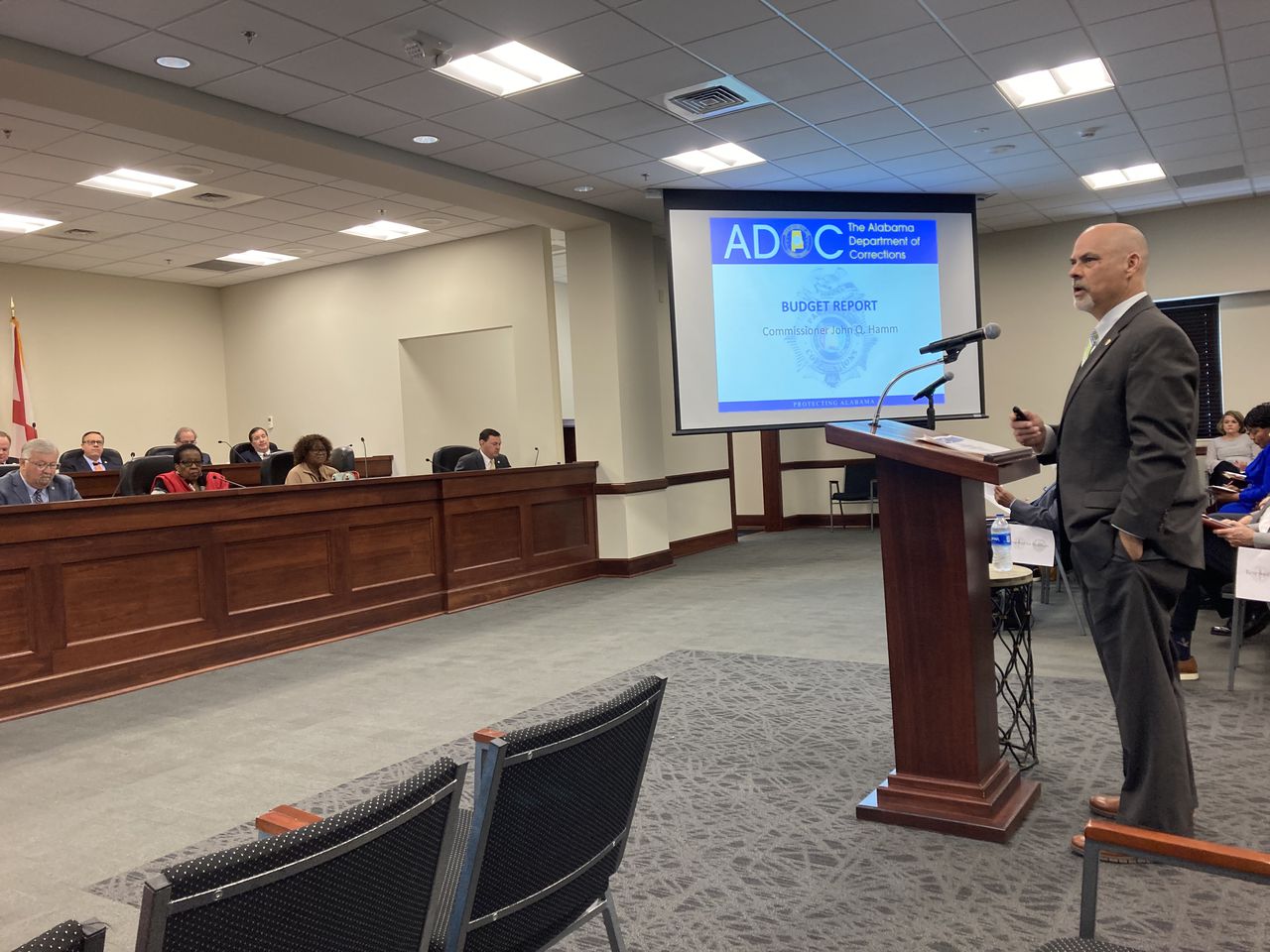Prison commissioner: Staffing is No. 1 issue, cell phones No. 2
Alabama Department of Corrections Commissioner John Hamm appeared before state lawmakers this morning to talk about the agency’s budget request for next year and to answer questions about ongoing issues with the agency.
The Legislature’s budget committees are holding hearings to prepare for the legislative session that starts March 7.
For years, the ADOC has faced a severe shortage of correctional officers, a problem that is a major factor in a lawsuit by the Department of Justice alleging that unsafe conditions in men’s prisons violate the Constitution and a related federal lawsuit over mental health care. The ADOC has lost 500 security staff employees in the last 18 months, according to court filings in the mental health case. In that case, the state has been under a court order for several years to substantially increase staffing.
This morning, Hamm told lawmakers about the agency’s efforts to hire and retain more staff and said he was open to all suggestions.
“Any suggestions you might have, we’re all ears,” Hamm said. “I think one of our court orders says we will hire X number of security staff. I don’t how we’re going to make them come to work.”
In a slide presentation, Hamm told the legislators that the ADOC has 1,732 filled positions in its security staff and 688 paid slots that are vacant, or 28 percent. In support staff, Hamm said the agency has 1,168 filled positions and 264 vacant, paid slots, or 18 percent.
Hamm said the consequences of that include an inability to keep contraband out of prisons, including cell phones. Hamm said most of the contraband is thrown over the perimeter fences and the ADOC does not have the personnel to adequately prevent that.
“Staffing will solve so many other issues,” Hamm said. “If you have people to do jobs, if you have enough correctional officers in dorms, then they can eradicate more cell phones or keep an eye on it. Keep an eye on the perimeter. Staffing is the number one issue. And then cell phones is number two.”
Hamm said ADOC is preparing to take bids from private firms to help fill some security positions in prison, those that don’t involve direct contact with inmates. Hamm said that could be working inside cubicles within the prison, searching employees as they enter and leave the prison, and possibly working in prison towers.
Hamm said ADOC has for several years used private security to guard inmates who are in hospitals.
In addition, Hamm said the agency is working with the State Personnel Department to develop arrangements to use law enforcement from other state agencies to work on prison perimeter security.
Rep. Brett Easterbrook, a Republican from Washington County, said he did not understand how prisons could not monitor people throwing contraband over the fence.
“As a citizen, it’s hard to understand why you can’t stop it,” Easterbrook said.
“It circles back to staff when we’re putting out fires every day just to survive,” Hamm said.
As for cell phones, the ADOC is requesting $13 million for “cell phone interdiction systems” for one year for three prisons.
Hamm declined to go into specifics about what that was. When asked if it was jamming signals, he said, “something like that.”
“The federal government has jamming,” Hamm said. “We don’t have jamming. That’s only the federal government. We’re going to try it and see how it works, if we get the money.”
Hamm has said cell phones drive most of the other contraband problems in the prison.
It was the second time for Hamm to appear before lawmakers in the last week. He spoke to and took questions from the Legislature’s prison oversight committee last week and gave an update on the construction of new prisons in Elmore and Escambia counties. Plans call for the two prisons to have 4,000 beds each and to replace some of the state’s older prisons.
Caddell Construction is overseeing work on the Elmore prison, where the foundation pad and other preliminary work has been done. No general contractor is in place yet for the Escambia prison. Officials say the prisons will be finished in 2026.
Read more: Alabama prisons won’t release elderly and ailing: ‘I sure did think I would die in there’
